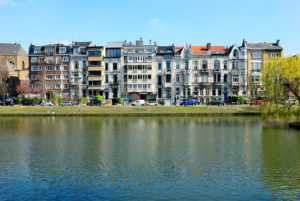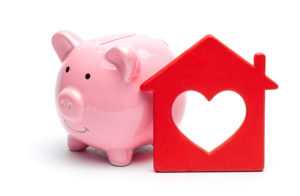Why is Belgium so attractive to the French?
- Home
- Latest news
- invest
- lifestyle
- Why is Belgium so attractive to the French?
Go back to all the latest news
Why is Belgium so attractive to the French?
Not all French nationals living in Belgium are tax exiles. Nor did they all arrive at the same time, even if there was a real tidal wave between 2005 and 2010. The wave has petered out since 2015 to make way for another category of French people: younger, less wealthy. They do not come to Belgium for the same reason, but they do find the same advantages.
Belgium is not a real tax haven. It is not for the Swiss, the Luxembourgers or the Scandinavians. It was once for the Dutch, and it could be for some well-to-do Brits and Italians.
Conversely, in view of the large number of tax exiles, it seems to be so for the French. Except that upon closer scrutiny, it is less a matter of a tax haven they are flocking to, than a tax hell they are fleeing from. And if they are going to flee, they might as well go to a place that is not too far away (one hour and twenty-five minutes by high-speed train from Paris to Brussels, 20 minutes by car from Lille to Tournai), where people speak the same language.
Nevertheless, once they have had a foretaste (and that is also the case of a good number of citizens from Europe and the world over who arrive in Belgium for professional reasons), they find that things are not that badly off – essentially for two reasons, and even a third one for real estate adepts.
First attraction: untaxed capital gains
This is most certain the first call heard by the French: Belgium does not tax capital gains on securities, and in particular company shares, whereas France taxes such capital gains at a rate of 30%.
But it is no longer possible, as it had been in the past, to set up your company in Belgium on Monday and resell it on Friday tax-free. Today, patience is required in order to avoid the tax cleaver once and for all.
To curb its nationals from relocating essentially for tax reasons, France introduced a tax barrier of sorts in 2011: the exit tax.
The latest version of this “exit tax” (it has been revamped three times) dates from 1 January 2019. It stipulates that, except where noted, in order to avoid a tax on possible capital gains once and for all, it is necessary to wait for two years in the case of investments worth a maximum of €2,570,000 and for five years above that figure. If a taxpayer does not have time to wait for any reason whatsoever and sells his company, the French tax of 305% will be due.
If the company has increased in value during this period, however, France concedes that it will tax only the capital gains generated before its former taxpayer moved to Belgium.

Second attraction: the very low taxation of non-real estate donations
Irrespective of the family ties between the donor (who makes the donation) and the donee (who receives it) and whether it is a conventional gift by hand or a transfer from account to account, donations of non-real estate securities (cash, shares, paintings, cars, etc.) are taxed very little or not at all in Belgium. The rate is 0%, provided that the donor survives for at least three years, which must be accompanied by proof. If the donor dies within this three-year period, the donated assets are subject to inheritance tax. If the donee does not want to take the risk of having to pay otherwise higher inheritance tax, he or she can register the donation and pay the donation tax. This varies depending on the Regions and family ties between 3% and 3.3% in the case of direct kinship and a maximum of 7% in the case of no family ties. These rates are ridiculously low when compared with the French donation tax. By way of example, the rate in the case of direct kinship is 20% for an amount below €552,325 and as high as a marginal tax rate of 45% for an amount above €1,805,677.
It is worth noting that in the case of a real estate donation, the rates in Belgium are more conventional, more or less at the same level as inheritance tax, except in Flanders, and thus not much more competitive than in France, if not less so. Belgium imposes a donation tax on the entire value of the property, in fact, whereas France, where the majority of donations are made subject to usufruct, taxes the bare ownership only. For example, if the donor is 65 years old, the bare ownership will be taxed at a rate of only 60% of the value of the property in full ownership, whereas in Belgium it will be taxed at 100% of the value.

Third attraction: an attractive property market
The wave of French nationals who came to settle in Belgium as of the end of the 1990s until 2015, albeit with different degrees of intensity throughout this period, were not very interested in real estate. Prototypes of tax exiles par excellence, they invested in Belgian “brick” (since Belgians use the term “brick” to refer to real estate, whereas the French use “stone”) only to acquire their main residence – without increasing a portfolio (second residence(s), investment properties let, etc.) built up in France and elsewhere (Italy, Morocco, etc.).
Conversely, those who followed them since 2015, essentially children of tax exiles who stayed in the country and young entrepreneurs who settled there (start-ups, technological incubates, restaurant chains, etc.), are far more interested in the Belgian real estate market. The rates are low and the brick seems very inexpensive to them. Prices in Brussels are four to five times lower than in Paris and comparable to those of some large provincial cities, which limits the upfront investment – whereas Brussels, as the capital of Europe, has a larger pool of tenants with comfortable purchasing power.
The fact that, like rental income, capital gains are taxed less heavily also weighs in the balance. In Belgium, capital gains tax (16.5%) is exempt after five years of ownership, whereas in France (19%, plus social security contributions which can bring the overall tax rate to 36.20%), the period of ownership is 30 years, except in special cases. Rental income is taxed in the same way as earnings from work in France, whereas in Belgium, at least as far as housing is concerned, it is income which is as theoretical as it is fictitious (known as cadastral income) that is taxed, not the real income. Calculated in 1975 and indexed, such annual cadastral income has absolutely nothing to do with the real income, since it often amounts to less than two months’ or even less than one month’s rent.
Finally, real estate professionals consider that the Belgian brick trumps the French stone in terms of their respective future potential. In Belgium, dwellings are larger overall (and can therefore be divided) and less optimized (with empty spaces in attics, shop floors, etc.) than in France. Again, in Belgium, the share of income allocated to housing is ca. 30% whereas it hovers closer to 50% in France, or even more if the tax on real estate wealth and the various taxes on land are included, which hedges Belgians better against a possible increase in value. The same applies to the conventional term of mortgage loans, which is 20 years in Belgium, but tends to be 30 years in France. In other words, if the value goes up, the room for manoeuvre in Belgium is far more flexible, substantial and varied than in France.
Article written with the help of Bertrand Marot, international client manager at Degroof-Petercam and FEDNOT, the Royal Federation of Belgian Notaries

PINPOINTED
What is meant by “tax resident”?
This notion of tax resident is a very important notion to pinpoint. One can be a tax resident of only one country in fact. But each State sets its own rules.
To be a French tax resident you have to meet at least one of these four criteria:
- Have your family home there;
- Stay there for more than six months in the course of the year;
- Carry out your main professional activity there;
- Have the centre of your main economic interests there (investments, centre of professional activities, location of the major part of your income..)
The double taxation prevention treaty signed by and between France and Belgium on income tax matters gives precedence to the State in which the taxpayer has a permanent home (as owner or tenant) or where he or she habitually resides. This is why tax experts encourage French nationals who do not wish to see their domicile in Belgium contested to part with their main residence in France.
Things are different when it comes to real estate, however, because their tax obligations (taxes, income tax, etc.) do not depend on the owner’s residence but on the location of the property.
HIGHLIGHTED SENTENCES
To curb its nationals from relocating essentially for tax reasons, France introduced a tax barrier of sorts in 2011: the exit tax.
Irrespective of the family ties between the donor and the donee, donations of non-real estate securities are taxed very little or not at all in Belgium.
Prices in Brussels are four to five times lower than in Paris and comparable to those of some large provincial cities.



